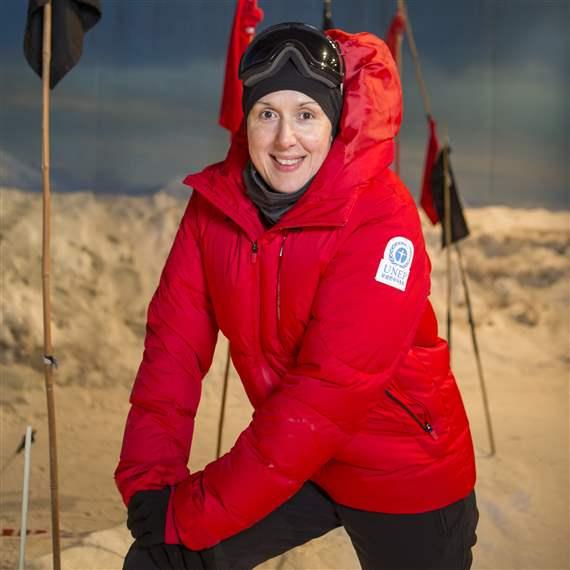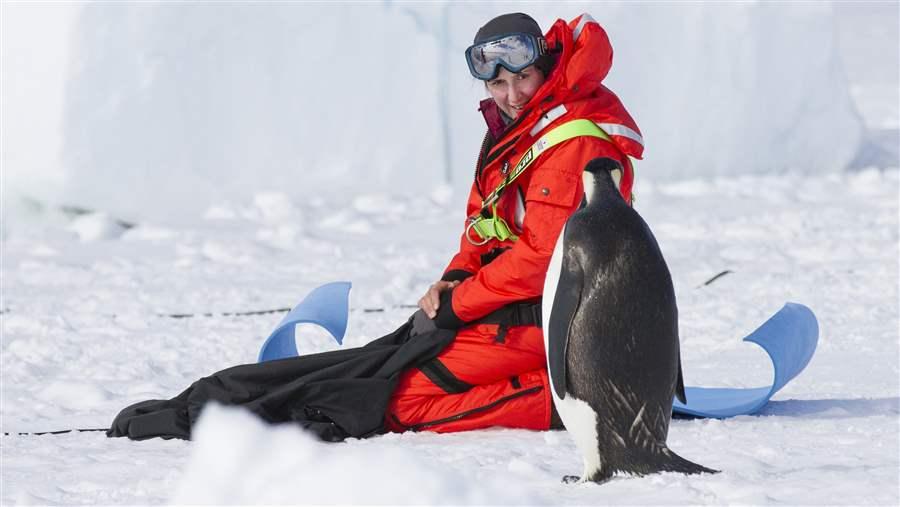Regina Eisert, Ph.D.

- Title
- Independent Researcher
- Country
- New Zealand
- Award year
- 2017
Research

Regina Eisert, in the field with an emperor penguin, will analyze the long-distance movements, diet, preferred habitat, and foraging areas of the Ross Sea’s largest predators, killer and sperm whales.
© E. Ovsyanikova
Whales, toothfish, and marine spatial protection in the Ross Sea, Antarctica
Regina Eisert is a research scientist who studies marine mammals, nutritional ecology, and mammalian physiology. She leads a research program on top Antarctic predators and studies the biological and political factors that shape big-picture marine conservation in Antarctica. She collaborates with scientists at multiple institutions and government agencies to foster understanding and effective protection of the Southern Ocean’s Ross Sea ecosystem.
The Ross Sea is one of the few marine ecosystems that still has healthy populations of top predators, such as killer whales, sperm whales, penguins and other seabirds, seals, and Antarctic toothfish. In October 2016, the Commission for the Conservation of Antarctic Marine Living Resources—the 25-member body that manages fishing activities in the region—established a 600,000-square-mile marine protected area (MPA), which, at roughly twice the size of Alaska, is the world’s largest MPA.
Fundamental baseline data on fish stocks and predator populations are needed to facilitate measurement of the long-term impacts of this action on fisheries and other marine resources. The Commission for the Conservation of Antarctic Marine Living Resources plans to review the scientific evidence in 35 years to decide how well the MPA is meeting its objectives.
Eisert will use her Pew marine fellowship to research and analyze the long-distance movements, diet, preferred habitat, and foraging areas of the Ross Sea’s largest predators: killer and sperm whales. She will design and use new low-impact satellite whale tags to track their movements without risking harm to the animals. She will also determine the whales’ degree of dependence on Antarctic toothfish, one of two commercially valuable species marketed as Chilean sea bass. Eisert’s work will produce essential baseline data that will help make the scientific case for continuation of the MPA after 2051.
To learn more about Eisert, read her bio.
See the full list of 2017 Pew marine fellows.